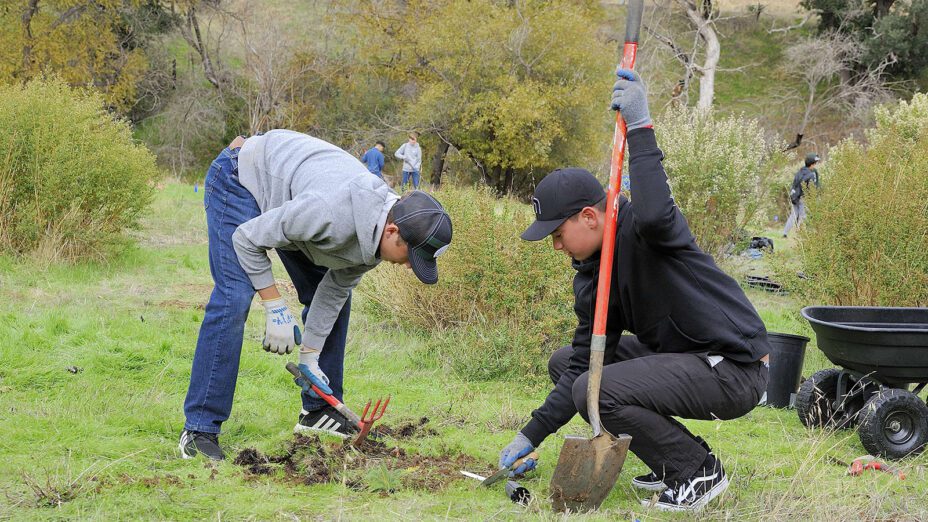
“Nature is so much bigger than us.”
In our most recent Conservation Collaboration Agreement (CCA) with De La Salle High School, over 40 students planted native plants and prepared a trail at Marsh Creek 4.

Students constructing a path at Marsh Creek 4 using burlap sacks and mulch. Photo by Al Johnson.
They planted more than 160 individual plants, a valuable contribution towards our 10,000 Trees and Plants project.
The students planted a variety of native species, including coyote mint (Monardella villosa), blue wildrye (Elymus glaucus), yarrow (Achillea millefolium), California sagebrush (Artemisia californica), sticky monkeyflower (Diplacus aurantiacus), and golden yarrow (Eriophyllum confertiflorum).
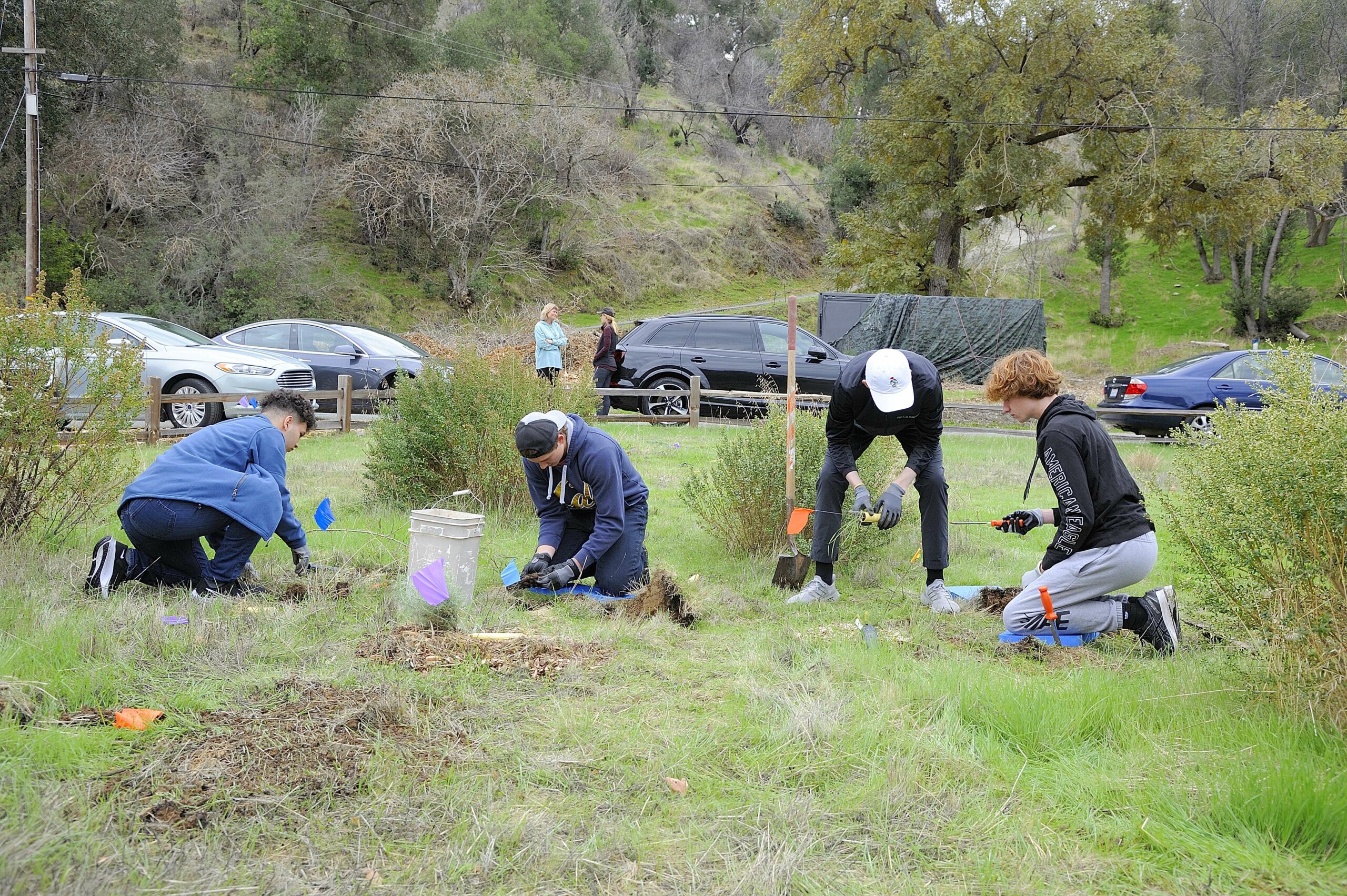
Students from De La Salle High School planting native plants at their recent Conservation Collaboration Agreement field experience. Photo by Al Johnson.
They also planted mugwort (Artemisia douglasiana), great valley gum plant (Grindelia camporum), coyote bush (Baccharis pilularis), black sage (Salvia mellifera), California bee plant (Scrophularia californica), silver bush lupine (Lupinus albifrons), naked buckwheat (Eriogonum nudum), and Datura sp.
They learned about the ecology, native plants, and wildlife of Mount Diablo with renowned wildlife biologist Doc Hale.
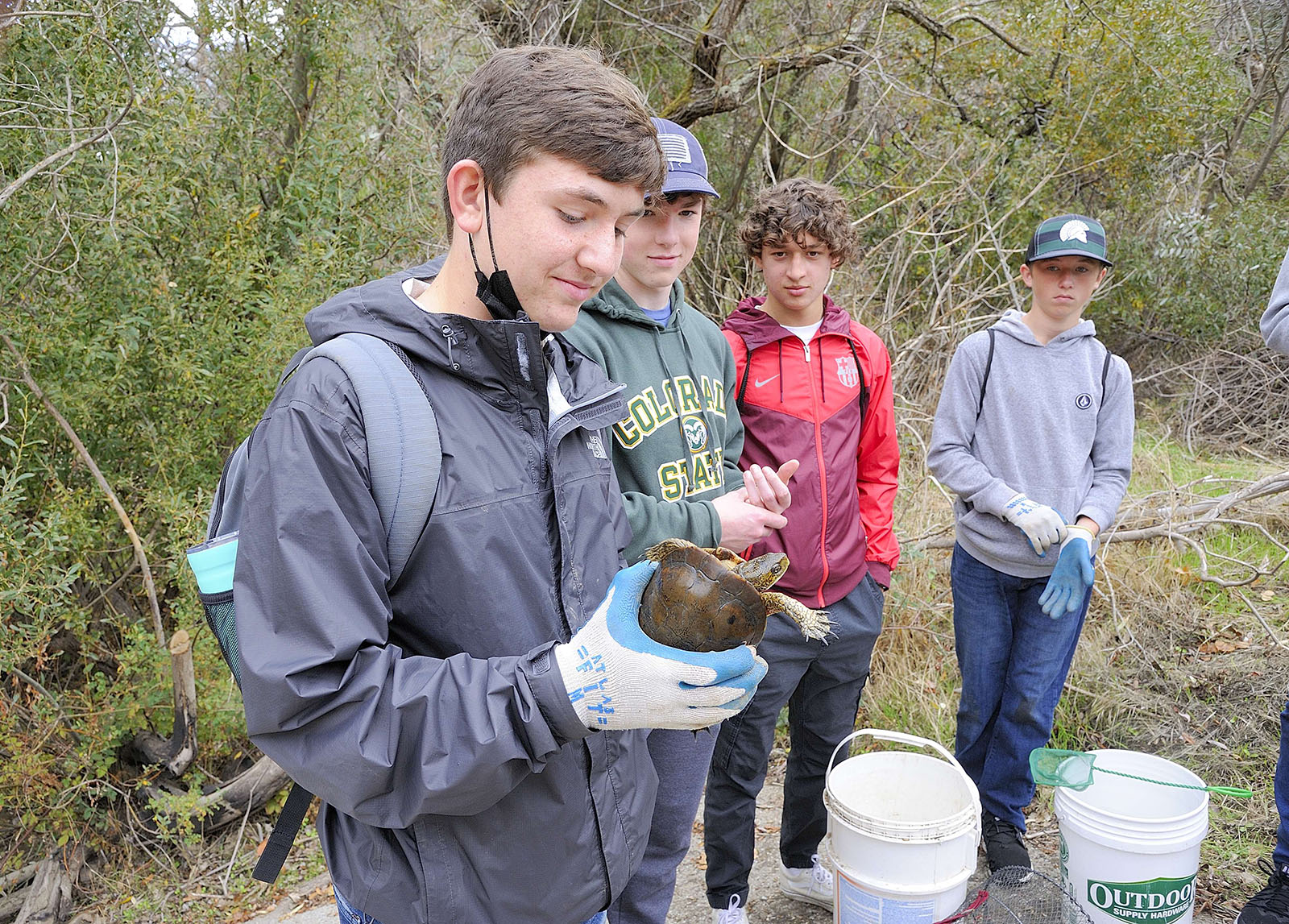
Wildlife biologist Doc Hale shared two western pond turtles that the students could hold. Photo by Al Johnson.
Finally, after an interpretive hike up to Marsh Creek 6, the students had time to sit and reflect on their surroundings while in nature.
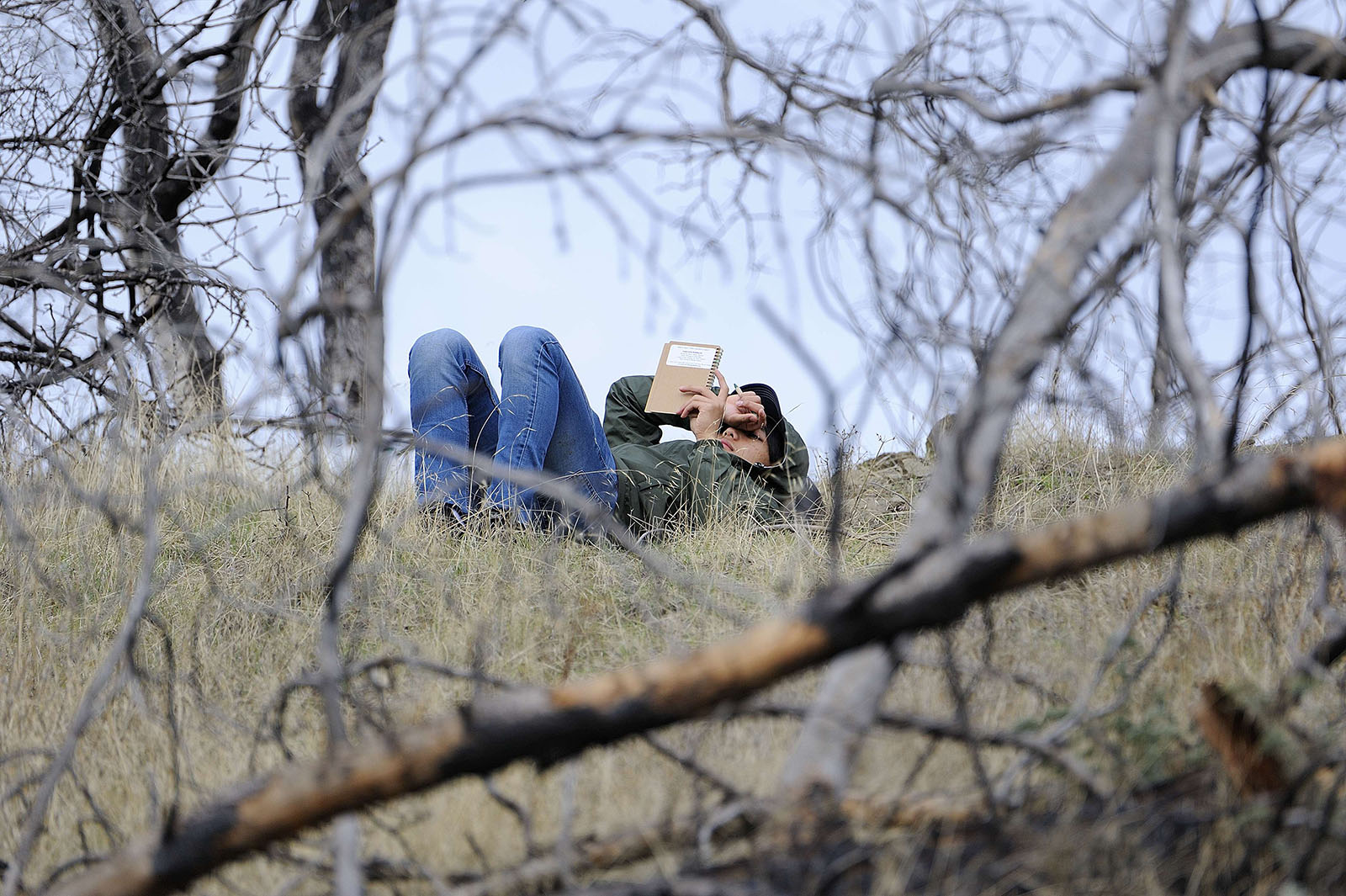
A De La Salle student lies in the grass under the trees and contemplates nature. Photo by Al Johnson.
We often talk about climate change as something that “the younger generation” will have to deal with. We had the chance to talk to them more deeply about how they felt about climate change and what their relationships with nature are. It may surprise you how thoughtful their responses were.
There was a consensus that it is important that we take care of nature, that nature can heal in many different ways.
“Nature is beautiful . . . and always moving,” said one student after his reflection.
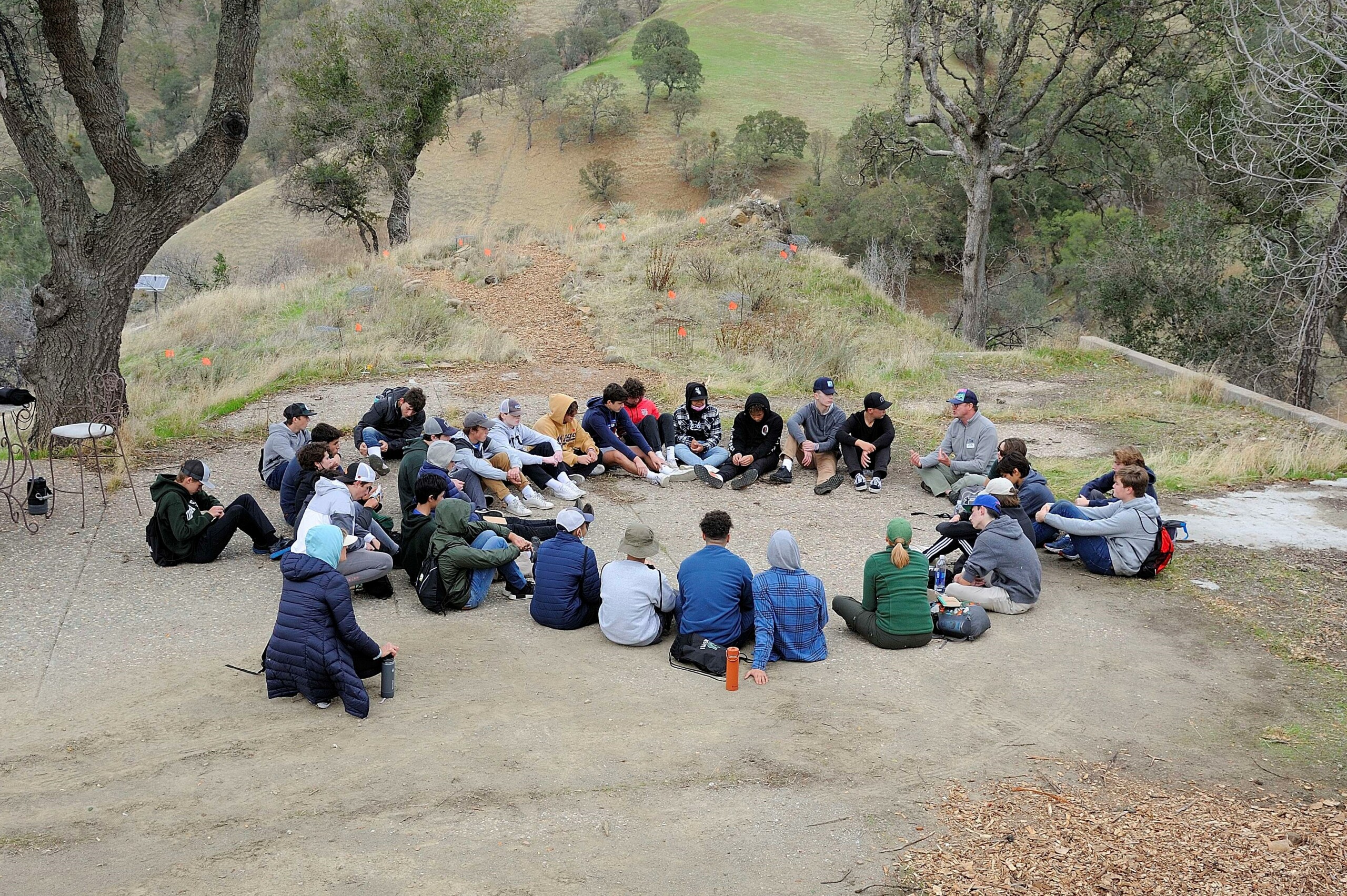
De La Salle students discussed what they reflected on after their solos. They realize the importance of protecting nature. Photo by Al Johnson.
When asked what his biggest concern about the climate crisis was, he replied, “I’m worried that I won’t be able to breathe in 20 years,” calling back to September 9, 2020, when wildfire smoke blocked out the sun and turned the sky orange. He also cited ocean acidification as one of other big concerns.
He and his family “take care” of nature by tending to the garden in their backyard. Just planting a section of your own backyard with native plants can make a huge impact for wildlife and local ecology.
Through this experience, the students were able to fall a little more in love with nature, a key to solving the climate crisis. Appreciation for everything that nature offers leads to protecting it.
We are also teaching them that they can meaningfully contribute to ending climate change.
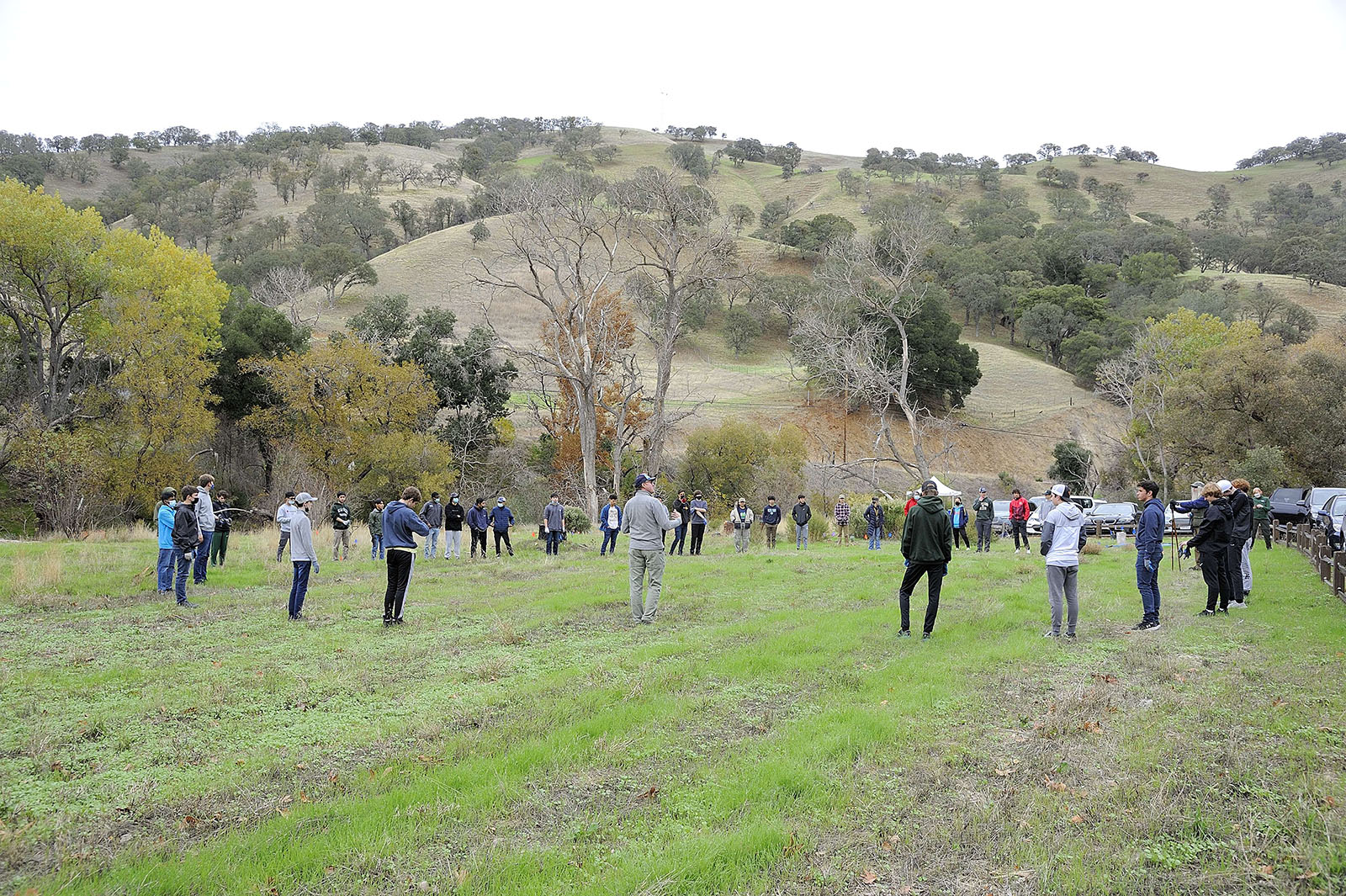
De La Salle students and teachers listening as Save Mount Diablo staff discuss land conservation in the field at Save Mount Diablo’s Marsh Creek 4 property in the Diablo foothills.
Top photo by Al Johnson.

